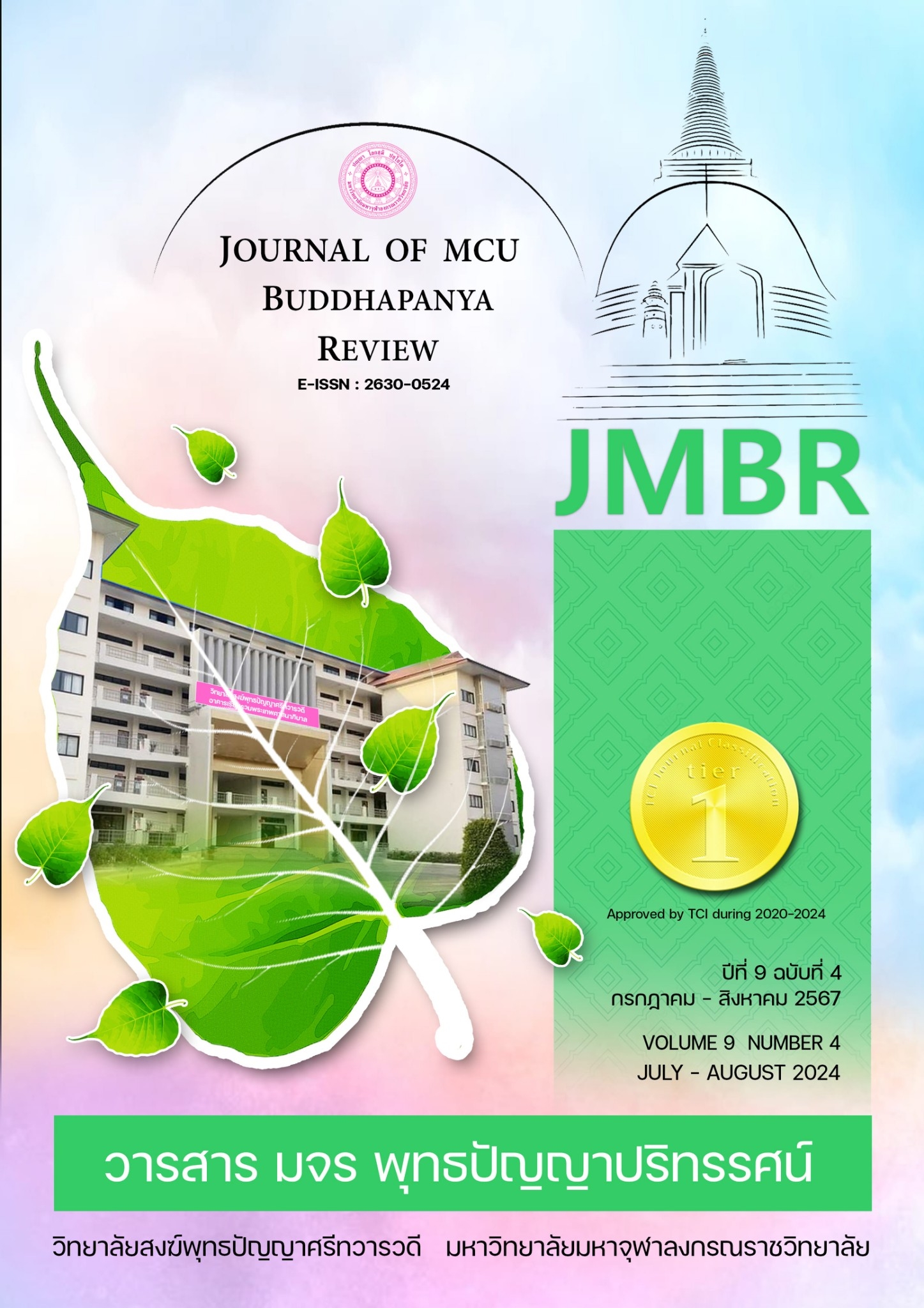รูปแบบการบริหารการพัฒนาครูอาชีวศึกษาในการแสวงหาและใช้องค์ความรู้ เพื่อยกระดับวิชาชีพและคุณภาพชีวิต
คำสำคัญ:
ปัจจัยเชิงสาเหตุ, รูปแบบการบริหาร, ยกระดับวิชาชีพครู, คุณภาพชีวิตบทคัดย่อ
การวิจัยครั้งนี้มีวัตถุประสงค์เพื่อ 1) ศึกษาปัจจัยเชิงสาเหตุของพฤติกรรมการแสวงหาและใช้องค์ความรู้ 2) ศึกษากลุ่มครูอาชีวศึกษาที่ควรได้รับการพัฒนาก่อนและปัจจัยส่งเสริม 3) ตรวจสอบรูปแบบเชิงสาเหตุพฤติกรรมการแสวงหาและใช้องค์ความรู้ และ 4) พัฒนาและประเมินรูปแบบการบริหารการพัฒนาครูอาชีวศึกษาในการแสวงหาและใช้องค์ความรู้เพื่อยกระดับวิชาชีพและคุณภาพชีวิต ใช้วิธีวิจัยแบบผสมเชิงปริมาณและเชิงคุณภาพ กลุ่มตัวอย่างในการวิจัยเป็นครูสังกัดสำนักงานคณะกรรมการการอาชีวศึกษา 324 คน ได้จากการสุ่มแบบหลายขั้นตอน เครื่องมือที่ใช้ในการวิจัย คือ เป็นแบบวัดมาตรประเมินรวมค่า แบบสัมภาษณ์ผู้เชี่ยวชาญ และแบบประเมินรูปแบบ สถิติที่ใช้วิเคราะห์ข้อมูล ได้แก่ การทดสอบที การวิเคราะห์ความแปรปรวนทางเดียว การวิเคราะห์ถดถอยพหุคูณ และการวิเคราะห์เส้นทางอิทธิพล
ผลการวิจัยพบว่า 1) ตัวแปรปัจจัยทั้ง 3 กลุ่ม ร่วมกันอธิบายพฤติกรรมการแสวงหาและใช้องค์ความรู้ของครูอาชีวศึกษา ได้ร้อยละ 60.2 และ 64.0 ตามลำดับ โดยมีตัวแปรสำคัญ คือ ทัศนคติที่ดีต่อการแสวงหาและใช้องค์ความรู้ การได้รับการสนับสนุนทางสังคม ลักษณะมุ่งอนาคตควบคุมตน และการเข้าถึงสื่อสังคมออนไลน์ 2) กลุ่มครูอาชีวศึกษาที่สมควรได้รับการพัฒนาก่อนมี 2 กลุ่ม ได้แก่ กลุ่มครูอาชีวศึกษาที่มีอายุมากกว่า 40 ปี และกลุ่มครูอาชีวศึกษาที่มีตำแหน่งข้าราชการครู ปัจจัยส่งเสริมที่สำคัญสำหรับครูอาชีวศึกษาสองกลุ่มดังกล่าวคือ ทัศนคติที่ดีต่อการแสวงหาและใช้องค์ความรู้ การได้รับการสนับสนุนทางสังคม และการเข้าถึงสื่อสังคมออนไลน์ 3) รูปแบบปัจจัยเชิงสาเหตุพฤติกรรมการแสวงหาและใช้องค์ความรู้ของครูอาชีวศึกษา สอดคล้องกับข้อมูลเชิงประจักษ์ โดยอธิบายได้ร้อยละ 98.1 4) รูปแบบการบริหารการพัฒนาครูอาชีวศึกษาในการแสวงหาและใช้องค์ความรู้เพื่อยกระดับวิชาชีพและคุณภาพชีวิต ทั้งส่วนที่เป็นรูปแบบการบริหารการพัฒนาครูอาชีวศึกษาที่ดำเนินการโดยผู้บริหาร และส่วนที่เป็นรูปแบบการพัฒนาเพื่อส่งเสริมจิตลักษณะสำคัญของครูอาชีวศึกษา โดยใช้โปรแกรมการฝึกอบรม โดยมีค่าเฉลี่ยรายด้านและรวมสูงกว่าเกณฑ์ 70/75 ทําให้เชื่อมั่นได้ว่าองค์ความรู้นี้ สามารถนําไปใช้ปฏิบัติได้ และนำไปใช้ประโยชน์ในการพัฒนาคุณภาพชีวิตต่อไป
เอกสารอ้างอิง
Division of Research Administration. (2016). Blueprint Thailand 4.0 the model for Thailand to be stable, prosperous and sustainable. Retrieved August 19, 2022, from https://waa.inter.nstda.or.th/stks/pub/2017/20171114-draeqa-blueprint.pdfFrom
Duangdean Bhunthumanavin. (2001). Theory of Ethics tree, The research and delelopment for personel which is an high advance with social science behavior (4th ed.) Bangkok : Faculty of Social Deleopment, National Instute of Development Administration.
Duchdean Bhunthumanavin. (2010). The Success of Mathematics teachers’s development by practicing of mental traits and integration skills : The output from the second research. The Journal of Behavioral Science : the system of Thai behavior, 7(1), 66-109.
Duchdean Bhunthumanavin. (2013). Antecedents of Mindful Risk-Taking Behavior in Secondary School Students. A Path Analytic Approach : The redearch and development for Thai behavior, National Research Council of Thailand, Bangkok.
Duchdean Bhunthumanavin and Amporn Makanong. (2004). Antecedents and Consequences Concerning Students'Development Behaviors of Secondary School Mathematics Teachers. The research, National Research Council of Thailand, Bangkok.
Neon Pinpradit. (2014). The Research of Social trust index system like the wise of undergraduate students Universities in the three southern border provinces. A Path Analytic Approach : The redearch and development for Thai behavior, National Research Council of Thailand, Bangkok.
Prakit Singtong. (2017). The Development indicators of Teacher Competency in 21stcentury in Schools Under the Primary Educational Service Area Offices in Northeastern. Journal of Educational Administration, Khon Kaen University, 13(1), 67-76.
Prapawadee Suebson and Naruemon Raksasuk. (2003). Main issue about information source In the information management seminar series. Nonthaburi: Sukhothai Thammathirat Open University.
Pajaree Songseree and Wichuda Kijtorntham. (2017). Psychosocial Factors Related to Inquire Learning Behaviors and Skills in Twenty First Century Skills of the Lower Secondary Students. Journal of Behavioral Science, 23(1), 169-186.
Phichete Julrod. (2019). The Behavior of Using Social Networking for Teaching of Teachers in Private schools in Chiang Mai. Journal of Educational Studies, 13(1), 75-88.
Piputh Sornpaiboon. (2020). A model to Enhance Dedicated working Behaviors of Teachers in Schools Under Bangkok Metropolitan Administration. (Doctoral Dissertation). Universit
Wipada Srijomkhan. (2013). The Administrative Model to Develp the Thai Vocational Teachers Competency. (Doctoral Dissertation). Ramkhamhaeng University. Bangkok.
Siwakhan Thimachai. (2009). Psycho - Social Factors Related to the Self - Improvement Behaviors of Official Teachers in the Office of Yasothorn Educational Service Area 2. (Master’s Thesis). Ubon Ratchathani Rajabhat University, Ubon Ratchathani.
Supawadee Boonyawong. (2009). The Causal Factors of Teacher Behaviors in Conducting Learner Developing Activities for Enhancement of Desirable Attributes. (Research Report). Budget allocation from National Government for Thaksin University: Songkhla.
Sarayuth Woraweg. (2020). An administrative Model for the Teacher Development for Enhancing Students to be Good People. (Doctoral Dissertation). University of Phayao. Phayao.
Office of the Secretary of the National Strategy Committee. (2018). National Strategy 2018-2037. Bangkok: Office of the National Economic and Social Development Board.
Amornrat Horpram. (2018). Psycho-Social Factors Related to Teachers Responsibility under the Office of Ubon Ratchathani Educational Service Area 5. (Master’sThesis). Ubon Ratchathani Rajabhat University, Ubon Ratchathani.
Chen, S. J. (1969). Stress, Bunout and Social Support among Teachers in Taiwan (China). Dissertation Abstracts International, 57(1), 41.
Magnusson and Endler. (1977). The Interaction Model of Anxiety: An Empirical Test in an Examination Situation. Canadian Journal of Behavioural Science, 9(2), 18-21.
March, J. G. (1991). Exploration and exploitation in organizational learning. Organization science, 2(1), 71–87.
Nation, M., et. al.,. (2003). What works in prevention: Principles of effective prevention programs. American Psychologist, 58(6/7), 449-456.
Popadiuk and Vidal. (2009). Measuring knowledge exploitation and exploration: An empirical application in a technological development center in Brazil. Sao paulo, 19(1-16).
ดาวน์โหลด
เผยแพร่แล้ว
รูปแบบการอ้างอิง
ฉบับ
ประเภทบทความ
สัญญาอนุญาต
ลิขสิทธิ์ (c) 2024 วารสาร มจร พุทธปัญญาปริทรรศน์

อนุญาตภายใต้เงื่อนไข Creative Commons Attribution-NonCommercial-NoDerivatives 4.0 International License.



